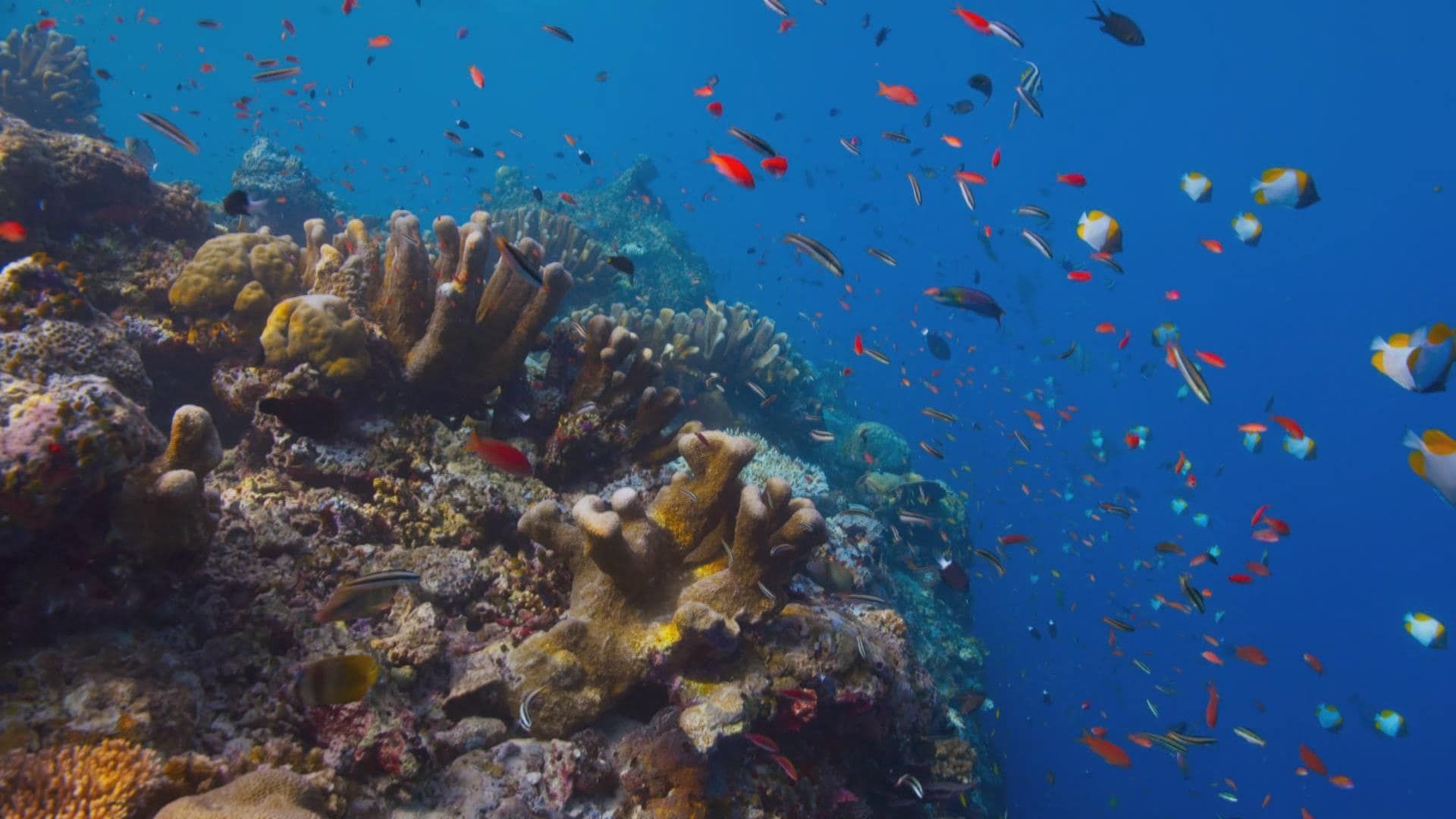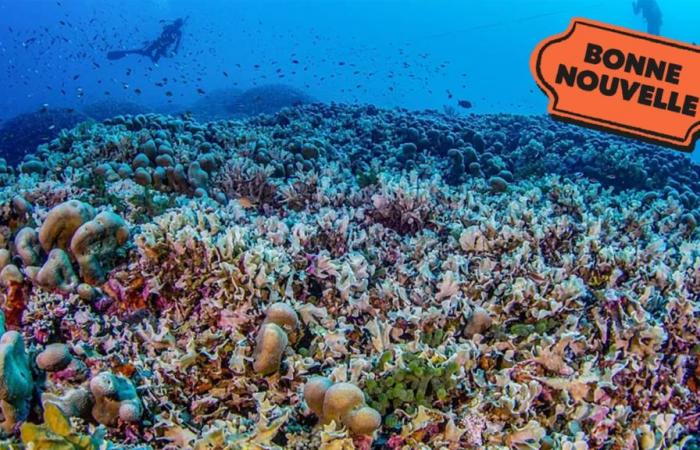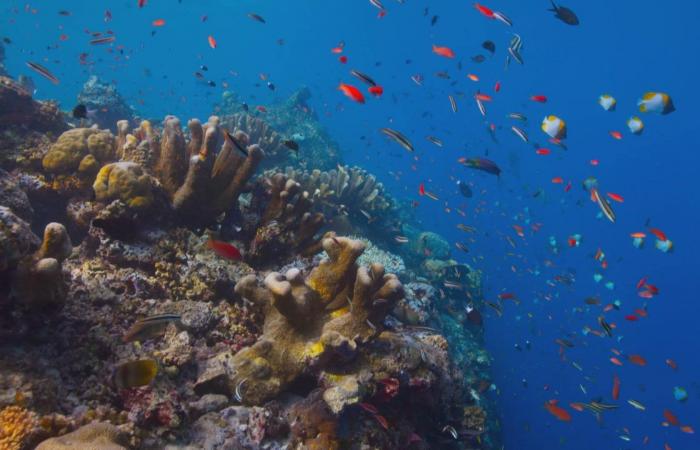The discovery of the coral is a beacon of hope for scientists as reefs are disappearing due to global warming.
A text by Félicia Latour
The discovery of the world’s largest coral is a ray of hope for scientists as reefs are disappearing due to global warming.
The coral measures 34 meters wide, 32 meters long and 5 meters high. (That’s bigger than two basketball courts!) It’s so huge that it can be seen from space and is three times larger than any previously discovered coral.
The coral is located near the Solomon Islands, an archipelago in the Pacific Ocean. Photo: Google Earth
What is a coral?
It’s like a big underwater city made up of millions of animals called polyps. The polyps, which resemble sea anemones, work together to catch food, share energy and build their shared home.
Coral polyp. Photo: Hamel and Mercier
This coral is part of a species known as Peacock nailor scapula coral, because it has columns that resemble shoulders. It is probably at least two centuries old, if not 300 ans.
Just when we thought there was nothing more to discover on planet Earth, we discovered a massive coral made up of nearly a billion tiny polyps, pulsing with life and color.– Enrique Salaexplorer in residence with National Geographic
Although the coral is in excellent health, researchers are concerned about the many threats facing all corals, including climate change and overfishing.

Although coral reefs occupy less than one percent of the ocean floor, they are home to a quarter of all known marine species. Photo: BBC
Why protect corals?
This type of coral is a refuge for marine life, including young reef fish, crabs and shrimp, which shelter in the coral’s minidomes.
With information from National Geographic








